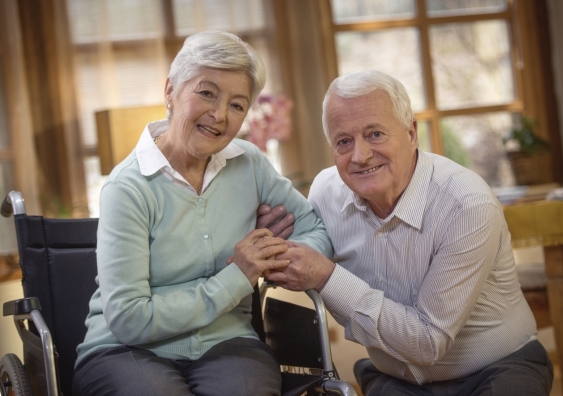Ageing and disabled Australians spark a DIY revolution
Ageing and disabled Australians have started a DIY revolution, turning to major hardware stores for home modification products that allow them to stay in their homes for longer.
Ageing and disabled Australians have started a DIY revolution, turning to major hardware stores for home modification products that allow them to stay in their homes for longer.

Fran Strachan
Communications Manager Low Carbon Living CRC
+61 2 9385 5402
fran.strachan@unsw.edu.au
Ageing and disabled Australians have started a DIY revolution, turning to major hardware stores for home modification products that allow them to stay in their homes for longer, research from UNSW’s Faculty of Built Environment shows.
At least 15,000 DIY modifications are undertaken by older or disabled people in NSW each year, resulting in an annual cost offset to health and aged care services of around $15 million annually, according to the research from UNSW Associate Professor Catherine Bridge.
Bridge analysed the consumer direct sales data from Australia’s largest national hardware chain by monitoring the sale of five products: grabrails, handrails, hand-held showers, shower infills and small ramps.
The annual savings are based on product selection, purchase, installation or construction being undertaken by privately funded individuals or their family and friends, rather than support services that often have long waiting lists.
“This research shows government programs that support DIY home modifications are cost effective for both consumers and governments,” Bridge says.
“Overwhelmingly, people want to stay in their own homes rather than go into care.”
Bridge will present her Ageing, Disability & Home Care-funded research, Do it Yourself Home Modifications: Are hardware stores enabling greater choice and control than traditional building services? at the Home Modifications Australia Conference in Canberra next week (Thursday 28 – Friday 29 April) .
Bridge predicts demand for home modification products will only increase with the introduction of the National Disability Insurance Scheme, which will give its clients more autonomy and choice.
“Overwhelmingly, people want to stay in their own homes rather than go into care,” says Bridge. “When people complete their own home modifications they can choose the products they want and have control over the process.”
Bridge is also the Director of UNSW’s world-leading National Home Modification Information Clearinghouse, a web-based, one-stop-shop for consumers, designers and industry.
A study by the Clearinghouse’s Dr Phillippa Carnemolla found that modifying the home of a community care client can reduce the need for care by an average of 42% and lead to a 40% improvement in a person’s quality of life. Dr Carnemolla will also present her research at the Home Modifications Australia Conference.